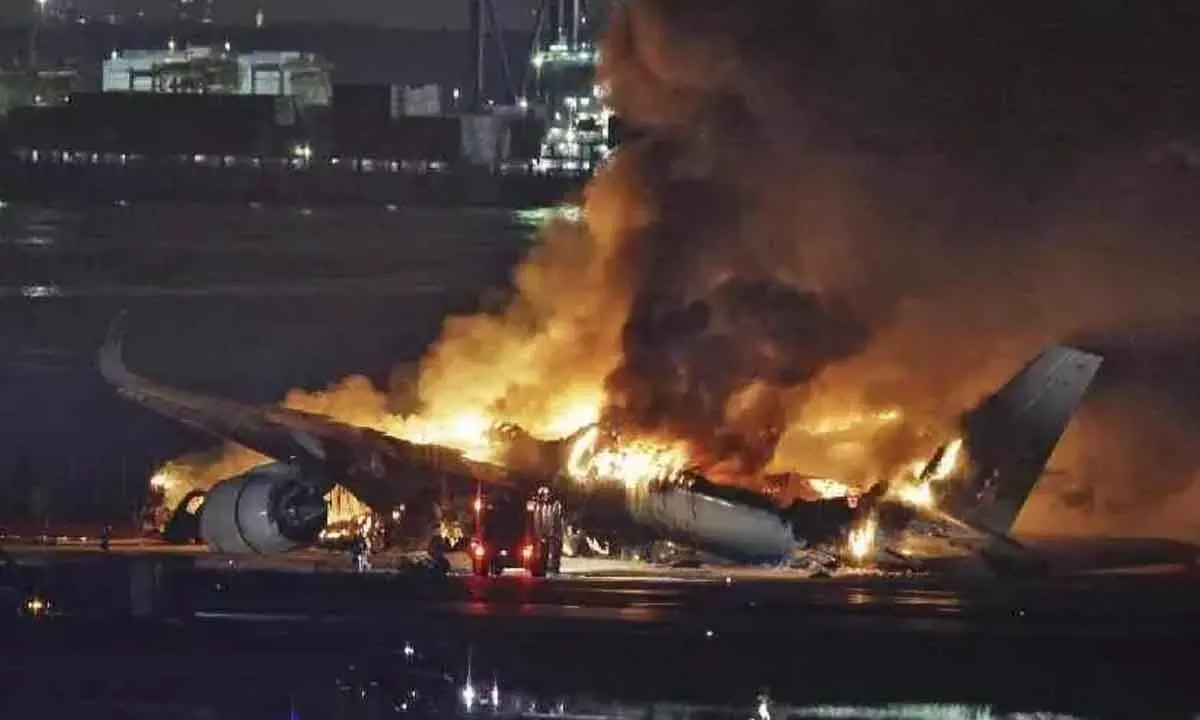Japan’s rescue of 379 passengers speaks volumes about discipline

Indian needs to learn several lessons from the way Japan handled the massive fire in Japanese aircraft after it hit the cargo plane. The aircraft had 379 passengers and the plane turned into an inferno in no time. The footages showed the intensity of the fire and if it were in any other part of the globe, perhaps such efficient management would not have been possible.
It was perfectionism at its peak in disaster management combined with the discipline which all the passengers had shown. There was no panic though heart of hearts they might have felt scared or worried. They did not jostle but proceeded quickly but calmly and slided down the inflatable evacuation slides and jogged away form the plane. The flight attendants according to the passengers told them to stay calm and move faster but systematically to get off the plane. Can we expect and imagine such a discipline here?
Experst said, “The interiors of newer aeroplane models are built to withstand fire. The side walls don’t burn as quickly as they would in previous aeroplanes.” This is something all airlines in our country too should look at. Both the government and the airline industry should make a serious study and upgrade the aircraft interiors with the kind of material that the new Japanese aircrafts were using.
According to experts, “The aeroplane fuselages made from carbon-composite fibres instead of conventional aluminium skins protected the passengers from the fire by not burning through for some time.” That must have given time for faster and safe evacuation.
Another most important aspect is discipline not only among the passengers but also the rescue team. For them disaster comes first not looting. In many countries including India, if there is any disaster, one comes to hear of tons of stories on how people had removed gold chains, money purses or watches etc.
Another point that one should note here is there has been no oral diarrhoea by the political parties or their leaders. On the contrary when some people jumped from the visitors gallery in to the Lok Sabha and lighted smoke crackers, even before the security staff could bring the situation under control and arrest the culprits, political party leaders made all kinds of comments and blamed the government. They did not have the basic discipline to fight such incidents unitedly and being a democracy tear into the government later.
But then how did Japanese become so disciplined? Well they learnt lessons from the 1985 JAL accident which killed 520 out of the 524 onboard. “Clearly the effect was profound on the airline. In a culture like Japan’s, they took that responsibility as a group and wanted to make sure nothing like that ever happened again.
So, when things go wrong, they see it in terms of how they can learn. Everything is an opportunity to improve while for us everything is oriented towards vote bank politics.




